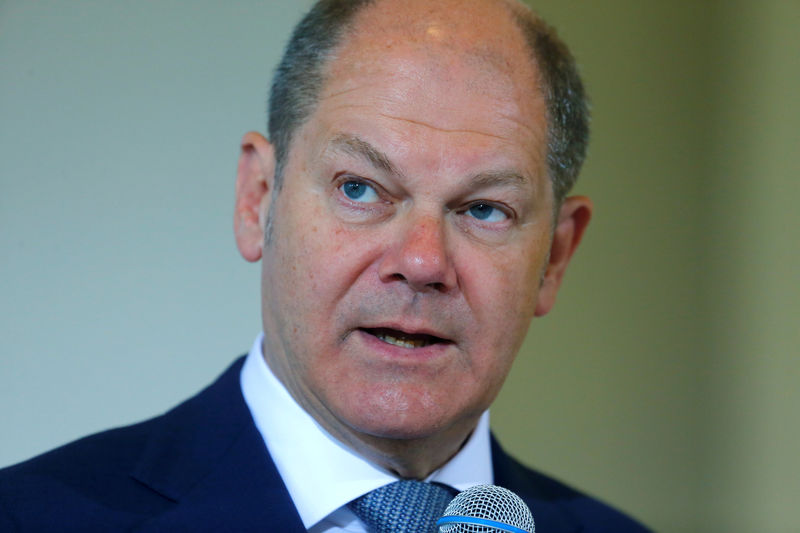 © Reuters. FILE PHOTO: German Finance Minister Scholz presents the annual customs report during a news conference in Berlin
© Reuters. FILE PHOTO: German Finance Minister Scholz presents the annual customs report during a news conference in BerlinBERLIN (Reuters) – Germany has suggested the creation of a Europe-wide unemployment insurance system to make the euro zone more resilient to future economic shocks, Finance Minister Olaf Scholz said in an interview published on Saturday.
The proposal, outlined in an interview with Der Spiegel magazine, is part of Germany’s efforts to seal a reform package together with France ahead of a summit of European Union leaders later this month.
“I’m in favor of supplementing national systems for unemployment insurance with a reinsurance for the overall euro zone,” Scholz said in the interview.
If a euro zone member faces an economic crisis that leads to massive job losses and a heavy burden on its social-security system, the country could borrow from this joint reinsurance fund, Scholz said.
“Once the recession is over, the country would pay back the funds it borrowed. At the same time, all countries should make efforts that their safety nets are as prepared for crisis as possible,” the minister added.
Asked if Germany would bear the risk of this new scheme, Scholz replied: “No, Germany profits. The German Federal Employment Agency’s reserves would remain untouched, and no debts will be communitized.”
The minister said the step would strengthen the financial stability of the euro zone as a whole, without disadvantages for the German unemployment insurance system.
“It’s similar to how things work in the U.S. There, individual states fund unemployment insurance, but pay into a federal fund. In times of crisis, they can borrow money from it to better share the burden – without running into problems,” Scholz said.
Scholz, also Vice Chancellor and a former labor minister, pointed to Germany’s labor market experiences during the financial crisis in 2008, when the government prevented massive job cuts through a state-subsidized program to finance reduced working hours, the so-called Kurzarbeit scheme.
“Why shouldn’t we apply this same experience to the euro zone? In my view, we need further solidarity-based elements in the euro zone,” Scholz said.
The finance minister also underlined his determination to introduce a financial transaction tax in Europe – a plan he outlined a Reuters interview last month.
Scholz said he backed a French proposal that revenues from such a tax on all kinds of stock market transactions should flow into the EU budget if it was implemented by all countries.
“Brussels could, for example, use those revenues to finance development work,” he said.
Fusion Media or anyone involved with Fusion Media will not accept any liability for loss or damage as a result of reliance on the information including data, quotes, charts and buy/sell signals contained within this website. Please be fully informed regarding the risks and costs associated with trading the financial markets, it is one of the riskiest investment forms possible.
Source: Investing.com




























